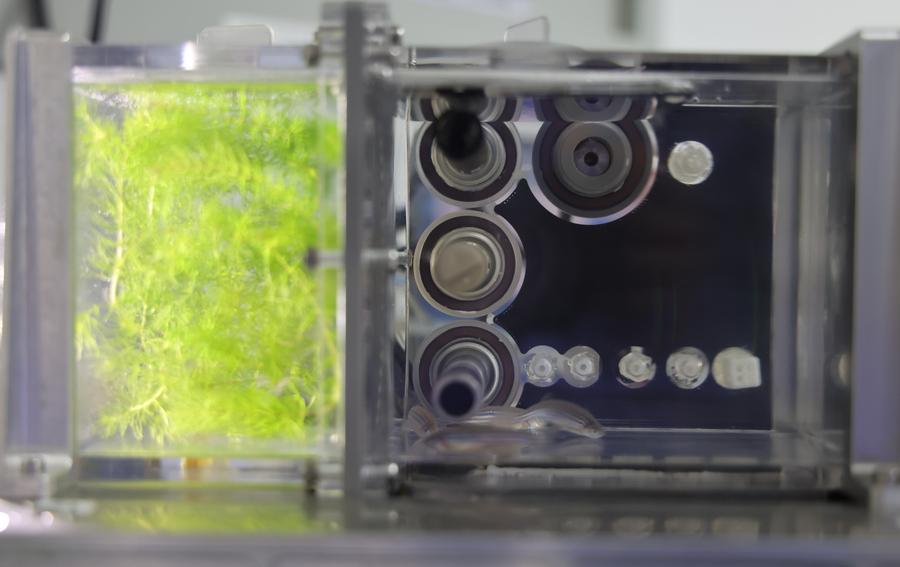Crew cherishes fish-feeding duty on space station
By ZHAO LEI | China Daily | Updated: 2025-01-09 09:00

During their first public appearance since their return from space two months ago, Shenzhou XVIII crew members discussed some of the variety of experiments they conducted aboard the Tiangong space station, including "space-based fish feeding".
"The experiments related to a wide variety of subjects, including fluid and combustion physics, life sciences, space medicine and materials science, as well as some cutting-edge technologies," Lieutenant Colonel Li Guangsu, one of the crew members, said during a news conference on Wednesday at the Astronaut Center in northwestern Beijing. "Through these experiments, scientists obtained a large volume of valuable data. We are proud to have been a part of those science endeavors."
Besides Li, the Shenzhou XVIII crew also consisted of mission commander Senior Colonel Ye Guangfu and crew member Lieutenant Colonel Li Cong.
The most impressive experiment, according to Li Guangsu, was the space-based fish feeding.
"The lovely zebrafish not only accomplished their tasks, but also became our friends and won our hearts," he explained. "The first time we saw them was the day we arrived at the space station. They appeared to not be moving and stayed where they were in the water for a long time. After several days, we found them more active, and they seemed to be in good control of their movements. We thought, 'well, the fish also need some time to get used to the space environment'."
The astronaut said that seeing the fish trying to adapt to the space environment reminded him of the way he learned to accustom himself to the weightlessness in orbit.
On April 25, two male and two female zebrafish, along with hornwort aquatic plants, were taken on the Shenzhou XVIII mission to Tiangong.
Onboard the orbital outpost, astronauts collected water samples and ensured the zebrafish were fed. They also observed abnormal behaviors such as the fish swimming upside down, rotating and circling in the microgravity environment, according to Sun Yonghua, director of the China Zebrafish Resource Center of the Institute of Hydrobiology under the Chinese Academy of Sciences.
He said that it was the first time that zebrafish survived for a long period — 43 days — in such a closed aquatic ecosystem, adding that the completely enclosed aquarium enabled unobstructed observation.























